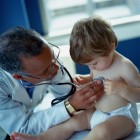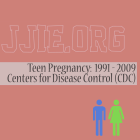
Last month, the Centers for Medicare & Medicaid Services awarded 23 states approximately $296 million in bonuses for increasing the number of children enrolled in health insurance programs.
The bonuses, funded by the Children’s Health Insurance Program Reauthorization Act of 2009 (CHIPRA), came a week after the Centers for Disease Control and Prevention released a report stating that about 1.2 million more children have health insurance in the United States than three years prior. According to the most recent estimates, approximately 93 percent of the nation’s children now have some form of health insurance coverage, a 2 percent increase from federal levels around 2008. When the Children’s Health Insurance Program was initially created in 1997, the national statistics hovered around 86 percent. In addition to providing performance bonuses for states that simplify and increase coverage for children, CHIRPA provisions allow states to enroll children using information culled from other public programs, as well as automatic eligibility for babies whose mothers are already covered by Medicaid or CHIP programs.
Cindy Mann, deputy administrator of the Centers for Medicare & Medicaid Services, said that although the nation faces “serious fiscal challenges,” she still believes that children’s health should remain “a top priority” for states. “Not only have more states qualified for performance bonuses in the past,” she said, “but many have continued to improve the efficiency of their programs.”
In 2010, the Centers for Medicare & Medicaid Services awarded more than $217 million in CHIPRA Performance Bonuses to 16 states, all of which qualified for performance bonuses again in 2011.







